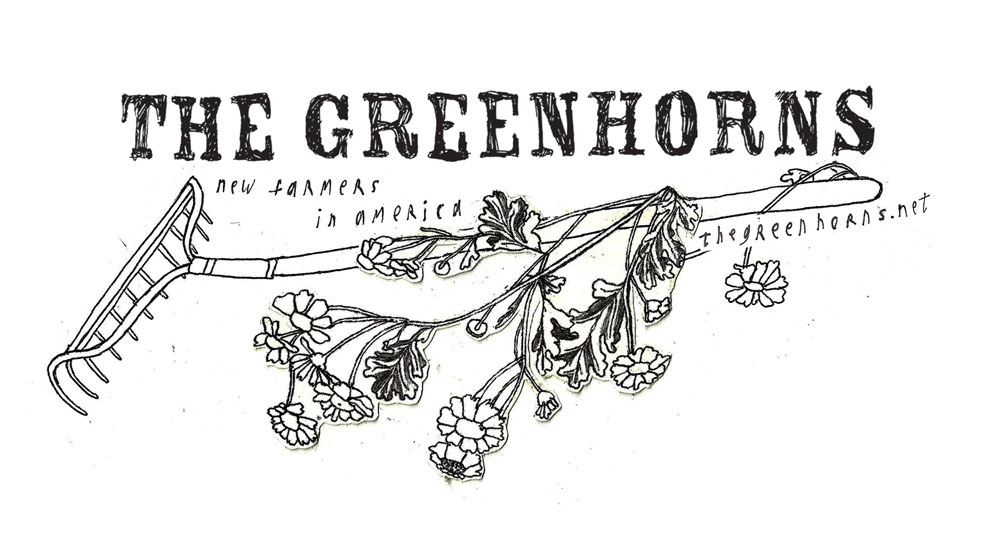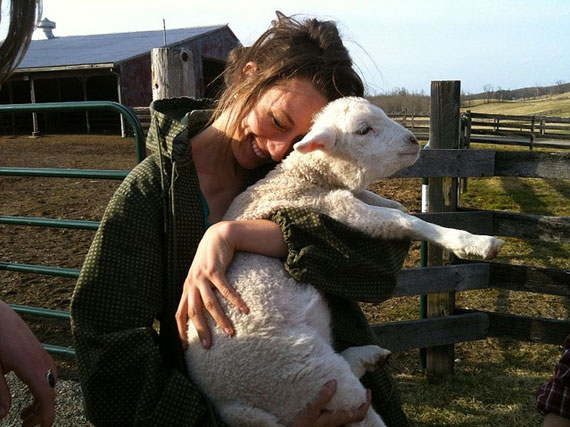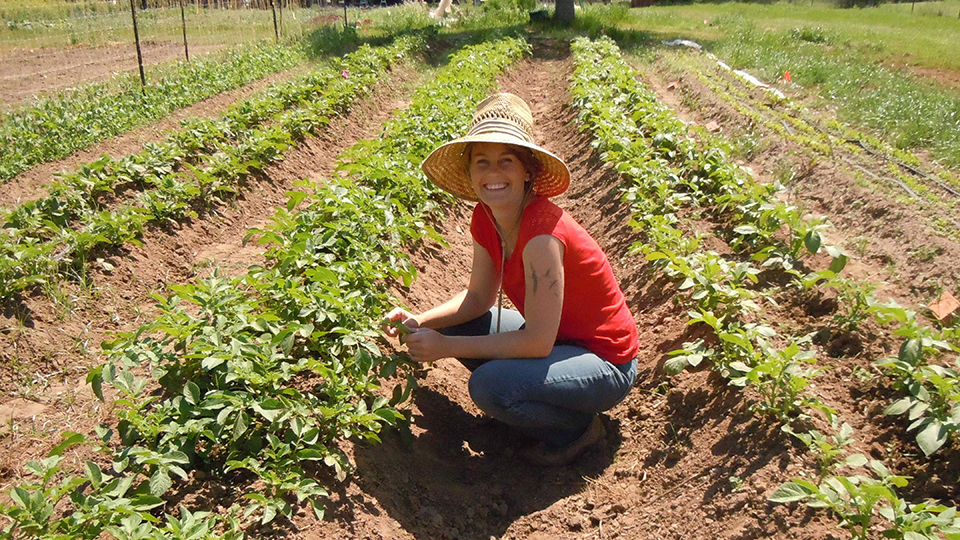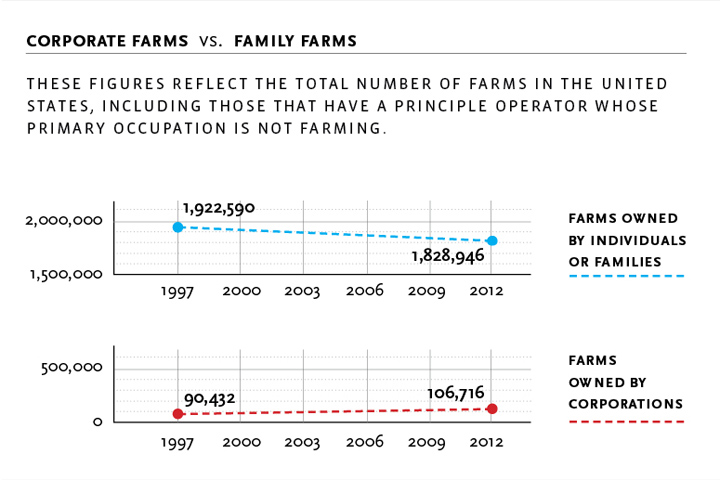Carol Ptak and her husband own Blacksmith Ranch, a small grass-fed Highland Cattle operation just outside of Rochester, Wash. The farm sits on more than 100 acres halfway between Seattle and Portland. Besides cattle, Carol and her husband raise quails, chukkaras, and pheasants. They also run a horse hay business, operate a hunting dog training facility, and breed Wirehaired Pointing Griffons.
Blacksmith Ranch's acreage is diverse. The property has rolling hillsides, grassy meadows, 60 acres of hay ground, two ponds, and a creek with cutthroat salmon and trout. “The ranch has a very unique capability,” Ptak said. “Keeping the ranch as farmland is critically important because of the output quality and productivity of the place.”
Although Ptak is passionate about Blacksmith remaining farmland for generations to come, she and her husband are no longer able to farm it themselves. “My husband developed a medical condition where [his health] suddenly deteriorated,” she said. While on a trip to Arizona, they discovered that the change of environment alleviated his condition. After several more trips, they were certain that life in Arizona would bring him more relief. "That made the move absolutely imperative.”
The Ptaks have bought a ranch in Arizona, and since none of their kids are interested in farming, they’ve put Blacksmith on the market. Four different ranchers have expressed interest in buying the property, but they keep running into the same problem: People simply can’t afford it.
“There is horrible gridlock in family farm transition today,” explains Ptak. “There is a group of dedicated young people who want to farm. There are highly productive farms that need new owners to produce needed healthy, locally produced food. The barrier is access to capital.”
We're Losing Our Family Farmers Faster Than We Can Replace Them
Stories like this are becoming more and more common. Today, the average age of the American farmer is 58 years old. And, according to the 2012 Census of Agriculture, 19 percent of farms—including very small hobby farms—are operated by farmers over the age of 65. Most of them are likely to retire in the next 20 years.
Couple that with the fact that only about six percent of farmers are under the age of 35. Many people are worried that small-scale family farms—once a paragon of the American dream—will soon die out as farmland falls into the hands of corporate food production companies and other large-scale development.
As family farms decline, acreage under corporate ownership is on the rise. The most recent Census of Agriculture reports that the amount of corporate-owned farmland has gone up more than 18 percent in the past 15 years.
Continued trends like this could be disastrous for people all over the country. Small-scale farms are healthier and more sustainable in many ways than large-scale farming operations. They boost local economies and bring fresh, healthy food to their communities.
And, contrary to what many people may think, small-scale farming is more productive. According to the Institute for Food and Development Policy, small-scale farms actually have greater dollar output per acre than very large ones.
Despite a national surge of interest in local food production and farm-to-table eating, the number of beginning farmers (defined as farming for 10 years or less) has gone down 20 percent since 2007. Difficulty entering the farming business—due to lack of money and land access—is likely responsible for this significant decline, rather than disinterest in the farming business.
“We took a mortgage out on our former home when we purchased the farm initially because of the impossibility to finance farm property,” Ptak said of how she and her husband were able to afford Blacksmith Ranch. “We had sufficient equity in our former home to pay for the farm. What young farmer just starting out has that kind of equity?”
One young family who lives down the road from Ptak is interested in buying Blacksmith Ranch. They already have a small farming operation of their own and want to buy Blacksmith to expand their capacity. “They desperately want our farm and could make a very nice living from the place,” says Ptak.
“Getting a farm like ours into hands like theirs is good for the economy, good for the food supply, good for them, and good for us—but it’s also currently mission impossible.”
The Barriers to Entry for Beginning Farmers
Severine von Tscharner Fleming is no stranger to the challenges of beginning farmers. A young farmer herself, von Tscharner Fleming directed the documentary The Greenhorns, which documents the growing young farmers movement across the country.
"Almost everyone who enters agriculture successfully—who doesn’t have family land—goes through a period of about 10 years of tremendous economic precarity," she said. "They risk pretty much everything, and work for almost nothing, to capitalize their business, pay for their land, and hopefully support their family."
That could mean 10 years of dealing with a house you can’t afford to renovate, broken equipment you can't afford to fix, and bills you can't afford to pay. And those financial burdens are in addition to ones that almost all young families are experiencing already, like student loan debt and the increased cost of raising a child.
In fact, 78 percent of beginning farmers polled by the National Young Farmers Coalition list lack of capital as the biggest challenge they face when trying to start up their own farm.
After graduating from Washington University's environmental studies program in 2008, Carl Wollschlager began his farming career by buying two greenhouses and finding land to rent on Craigslist. Once he had his operation up and running, he began growing vegetables. Wollschlager grows mostly salad greens but also things like corn, beets, and potatoes. He sells his produce to a local co-op and nearby restaurants.
Now in his third year of farming on rented land, Wollschlager is eager to buy his own farm. In the past three years he’s rented from two different landowners, and each time he’s run into challenges.
Both plots of land Wollschlager has rented are smaller fractions of a larger parcel. Other farmers, including the landowners themselves, use other parts of the land for their own farming. This means Wollschlager has to schedule things like watering times around multiple other schedules. “Both places have given me this awesome opportunity, but you have to take it with the grain of salt,” he said. “At end of the day it is their land.”
And renting land isn’t cheap. Between paying for things like increasing rent prices and high water bills, he’s found it nearly impossible to save money. "Lack of capital is the biggest issue," he said. "Corporations have access to so much capital and so much land."
Wollschlager often feels like he has to compete with larger corporate farming businesses when it comes to both pricing his products and scouting for land of his own. It’s difficult to offer prices for his produce that are competitive with giant farming operations, and nearly impossible to afford expensive land that corporations can swoop in and buy easily.
That's one reason Wollschlager wants to apply for a loan offered by the U.S. Department of Agriculture. In order to qualify for the loan, applicants must have a minimum of three years of experience in running a farm. Now in his third year, Wollschlager will soon be able to turn in his paperwork, but he knows the wait won't end there.
The program only loans out a certain amount of money annually, so qualified applicants are often put on a waiting list. Finding the land and getting the money to buy it could take years. Still, he is determined to make it happen.
Succession Planning to Save the Family Farm
FarmLink is one organization that works with both novice and experienced farmers to help ensure small-scale farming stays in business. With multiple chapters throughout the country, FarmLink connects knowledgeable and experienced farm-owners with beginning farmers looking to break into the business.
Ptak and her husband reached out to the Washington chapter of FarmLink when they decided to put Blacksmith Ranch up for sale. "They have provided the opportunity to get the word out about our farm to a different audience," she said.
The organization offers practical tips for all levels of experience. Their website is a great resource for anyone looking to explore a career in farming, gain access to land, or ensure that their family farm remains a farm once they can no longer farm it themselves. Connecting different generations of farmers is crucial since, ideally, farming skills, knowledge, and land pass from generation to generation. And, according to FarmLink, the most important step to creating fluidity between those generations is succession planning.
“Farm or ranch succession planning," explains the Farm Succession Guidebook, "is preparation to ensure that farm management and assets are transferred in such a way that the business remains at least as viable for the next generation operator as it is currently, while meeting the needs of the retiring farmers/ranchers.”
According to the guidebook, a successful succession plan does more than help farmers sell their land. Succession plans lay out a strategy for transferring land that is beneficial for both landowners and potential buyers. According to FarmLink, a successful succession plan helps to avoid unnecessary taxes, ensures financial security and peace of mind for all generations, develops the next generation's management capacity, and transfers management and ownership gradually for a smooth transition between generations.
A succession plan is a team effort. It’s a way for farm-owners and beginning farmers to plan ahead, make connections, and create relationships early on. Individual farmers need that type of intergenerational communication—especially during the next 20 years when such a large amount of farmland is on the line.
Getting young farmers onto farms should be a priority not just for farmers, but for everyone in surrounding communities who relies on their land and food.
Some of our small-scale family farms will inevitably be parceled out to larger farming corporations. Still, Ptak is hopeful that the hundred acres in rural Washington she has invested much of her life in developing can continue to thrive under new families for generations to come.
3 WAYS TO SHOW YOUR SUPPORT
- Log in to post comments




















